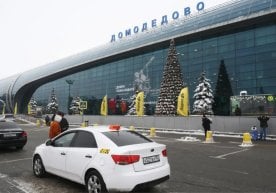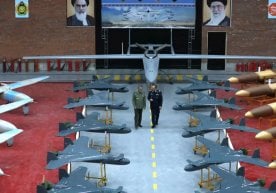Forgotten White House documents revealed secret lunch planned for Putin
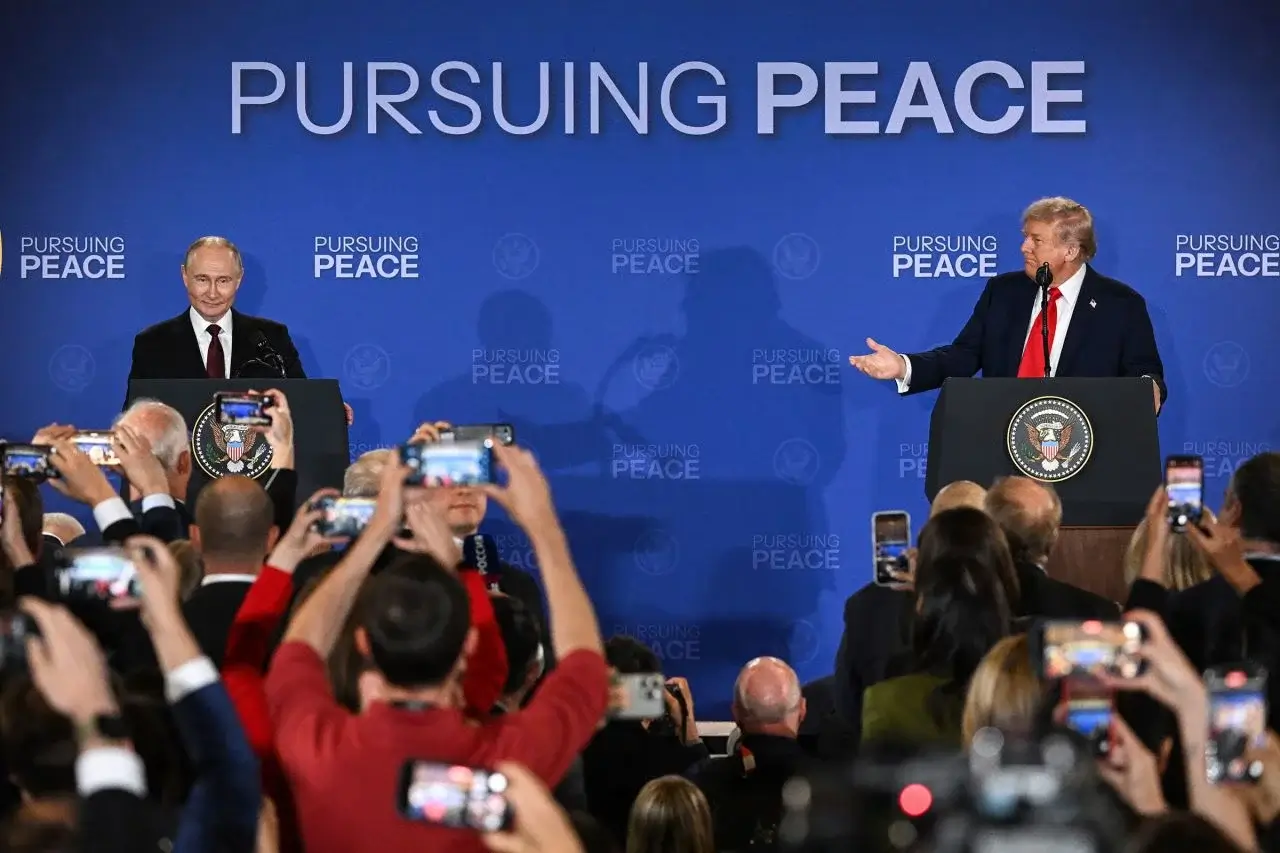
On August 15, after the meeting between the presidents of Russia and the United States, a special lunch in honor of Vladimir Putin was planned. This became known after documents belonging to the U.S. State Department's protocol service were left behind in a hotel in Anchorage.
The papers, obtained by NPR, contained the names and phone numbers of protocol staff, delegation seating arrangements, and even instructions on how to pronounce Russian surnames. For example, Putin — “POO-tihn,” Lavrov — “Laav-rof,” Ushakov — “Oo-sha-kov.”
Interestingly, the documents were found at the Captain Cook Hotel in Anchorage by an unidentified guest, who handed them to NPR. It was established that the papers were printed around 9 a.m. local time, about two hours before the presidents arrived.
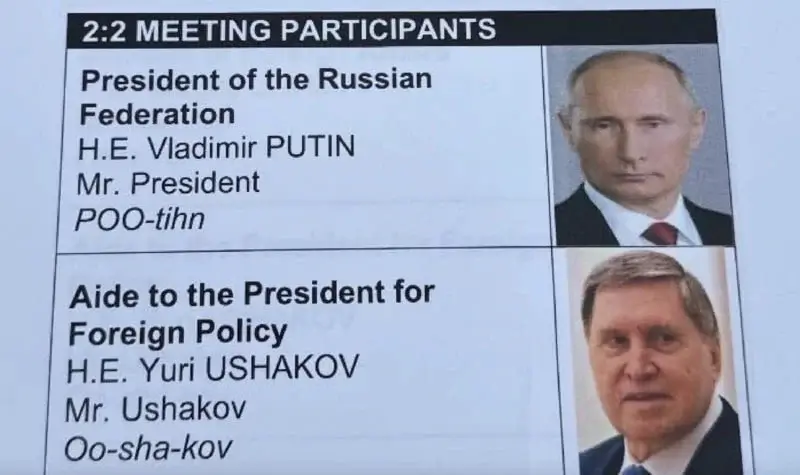
The documents also revealed that preparations for the meeting were done hastily. Initially, a “two-on-two” format was planned: Putin and his aide Yuri Ushakov were to negotiate with U.S. President Donald Trump and his representative Steve Witkoff. Later, the format changed, with three participants on each side: Russian Foreign Minister Sergey Lavrov joined Putin’s delegation, while U.S. Secretary of State Marco Rubio joined Trump’s side.
According to protocol, after the talks there was supposed to be “a lunch in honor of His Excellency President of the Russian Federation Vladimir Putin.” Six delegates from each side were expected to attend.
The menu was modest: a green salad with vinaigrette dressing, bread with rosemary and lemon butter, main course options of filet mignon with pepper sauce or halibut, mashed potatoes with butter or wasabi as a side, and crème brûlée with ice cream for dessert. Trump was also supposed to present Putin with a statuette of the bald eagle — the U.S. national symbol.
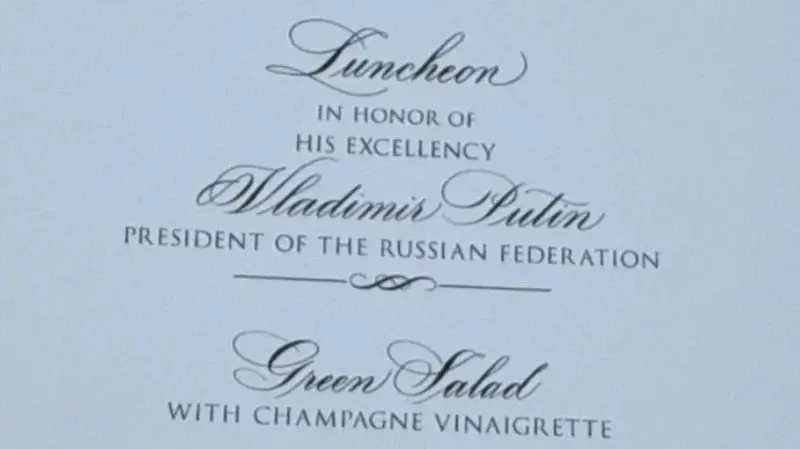
"Lunch in honor of His Excellency Vladimir Putin." Photo: NPR
However, the lunch never took place. Still, this information sparked heated debates in the West. Some politicians and opposition figures criticized the imagery of U.S. soldiers laying a carpet in front of the Russian president’s plane, interpreting it as symbolic “respect.”
Critics argued that the U.S. president, regarded as the leader of the free world, hosting as a guest of honor an autocrat wanted by the International Criminal Court for war crimes, carried strong symbolism.
Additionally, the leak of these documents raised concerns about the Trump administration’s approach to information security. NPR recalled that earlier in March, a journalist was mistakenly added to a secret chat where U.S. officials, including the vice president and the defense secretary, were discussing airstrike plans in Yemen.
In conclusion, the unusual events surrounding the Anchorage talks sparked discussions not only politically, but also symbolically and in terms of information security.
Read “Zamin” on Telegram!















